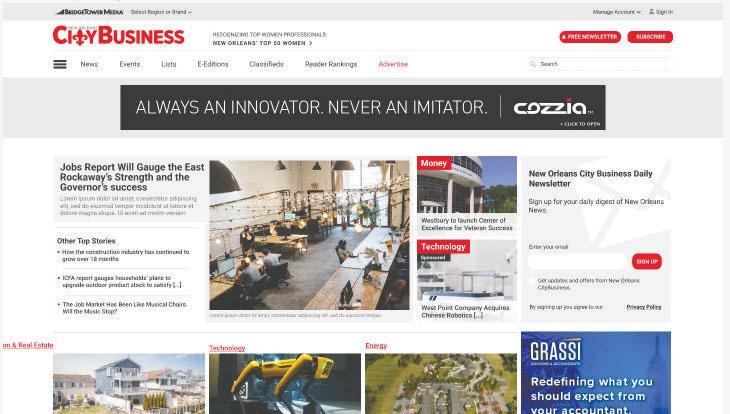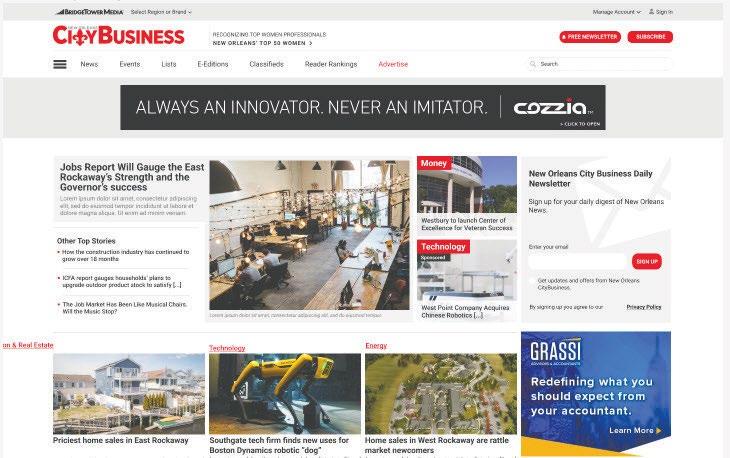






























IN PRINT. IN DIGITAL. IN PERSON. Expertly Focused On Today’s Legal Professional.
130 North McDowell Street, Unit B, Charlotte, NC 28204 (704) 377-6221 • FAX(704) 377-4258
E-mail: service@bridgetowermedia.com • Circulation: 1-877-615-9536
Managing Director/Publisher
Susan A. Bocamazo, Esq., sbocamazo@lawyersweekly.com
n EDITORIAL Editor
Ross Chandler rchandler@lawyersweekly.com
Digital Media Manager
Scott Baughman sbaughman@mecktimes.com

n CIRCULATION 1-877-615-9536 service@bridgetowermedia.com
n ADVERTISING Advertising Account Executive
Sheila Batie-Jones sbatie-jones@sclawyersweekly.com
n ACCOUNTING & ADMINISTRATIVE
Business Manager
Kelly Olson kolson@bridgetowermedia.com
n ART & PRODUCTION Creative Director
Melanie Bingham
Project Management
Jordan Mazuranic
Production Specialist
John Reno Director of Production Services
Bradley Redmond
SCLAWYERSWEEKLY
South Carolina Lawyers Weekly (USPS #020216) is published Monthly with General Statewide Circulation by South Carolina Lawyers Weekly at 130 N. McDowell St. Unit B, Charlotte NC 282042411. (919) 829-9333, (800)-876-5297.
Periodicals postage paid at Charlotte, North Carolina 28228-9998.
POSTMASTER - Electronic Service Requested. Send address changes to South Carolina Lawyers Weekly, Subscription Services, P.O. Box
1051 Williamsport, PA, 17703-9940
To place orders, temporarily stop service, change your address or inquire about billing: Phone: (877) 615-9536 or go to: https:// SClawyersweekly.com/subscribe/for a new subscription or https://SClawyersweekly.com/manage-accountfc/ to manage your account and to renew.
To submit subscription payments by mail: Subscription Services P.O. Box 1051 Williamsport PA 17703-9940
©2023 BridgeTower Media. Material published in South Carolina Lawyers Weekly is compiled at substantial expense and is for the sole and exclusive use of purchasers and subscribers. The material may not be republished, resold, recorded, or used in any manner, in whole or in part, without the publisher’s explicit consent. Any infringement will be subject to legal redress.
BridgeTower OpCo, LLC d/b/a North Carolina Lawyers Weekly Media is an equal opportunity employer.
COVER STORY :
p4 | Affirmative action rulings leave legal field uncertain
COURTS :
p10 | Retirement comments aren’t evidence of age bias
OPINIONS:
p14 | Roundup of South Carolina, federal court decisions
POWER LIST :
p19 | Top employment lawyers in state recognized
VERDICTS & SETTLEMENTS :
p23 | The latest results of South Carolina legal actions
LAWYERS IN THE NEWS :
p25 | New associations, promotions, honors
In recognition of the ever-growing importance of delivering news in the most engaging way, South Carolina Lawyers Weekly recently launched a redesign of its website, sclawyersweekly.com. The magazine’s team has worked hard over the past few months to create a more user-friendly and informative platform for you.
One of the more exciting aspects of the new website is its updated design. Great care was taken to create a modern and visually appealing layout. From the homepage to the individual article pages, every aspect of the site was carefully crafted to provide an enjoyable reading experience.
But it’s not just the aesthetics of the site that were improved. Several technical and functional upgrades were made to make your experience on the site even better.
For starters, the new website is fully optimized for mobile devices. With more people accessing the internet from smartphones and tablets, it is important that the site is easy to use and navigate on these devices. The site is “fully responsive,” meaning that it will adjust its layout and features to fit the screen of any device you use. Whether you are reading an article on your desktop computer or scrolling through the site on your phone, you will have a seamless and enjoyable experience.
Navigation also was simplified and streamlined, making it easier to find the articles and topics you are most interested in. Load times were optimized. The redesign also makes it easier to share articles, sign up for our newsletter and engage with our social media channels.
Of course, the content of the site is just as important as its design and functionality. We will continue to update and expand our articles to provide informative and engaging content.
I hope you enjoy the new online experience. Please reach out to me at rchandler@lawyersweekly.com with any feedback you would like to share. ◆
COVER PHOTO: DEPOSITPHOTOS.COM

Substance and shadows coexist in the wake of the Supreme Court’s decision curtailing affirmative action.
Yes, U.S. Chief Justice John Roberts was clear: Race no longer has a place in admission decisions at institutions of higher learning.
Yet, diversity remains critical to many law schools and law firms. And the decision in Students for Fair Admissions v. Harvard cast a shadow of uncertainty over how to achieve
diversity without breaking the letter or the spirit of the law — which Roberts assured us is the same.
On June 29, the same day the Harvard decision was rendered, the Supreme Court ruled in Students for Fair Admissions v. University of North Carolina that UNC’s consideration of race in admissions violated the Constitution’s Equal Protection Clause.
Officials from the University of North Carolina School of Law
declined to comment.

South Carolina Attorney General Alan Wilson did not immediately respond to a request for comment, but his office — along with 12 other state attorneys general — signed an open letter to Fortune 100 companies warning them of their obligations as an employer to refrain from discrimination based on race “whether under the label of ‘diversity, equity, and inclusion’ or otherwise.”
“Treating people differently because

of the color of their skin, even for benign purposes, is unlawful and wrong,” the letter reads. “Companies that engage in racial discrimination should and will face serious legal consequences.”
North Carolina Attorney General Josh Stein released a statement after the high court’s rulings, calling education the “great equalizer” that helps Americans achieve the American dream and noting that the decision makes it more difficult for young Americans to bring that dream to life.
“With crippling student debt and without affirmative action, minority students and those from working families will have to work even harder to catch up to their peers from more privileged backgrounds,” Stein wrote. “Our nation represents the promise of opportunity for all; that promise has been tarnished this week. I will keep fighting for an America that delivers on its ideals.”
At law schools across the Carolinas, officials said the decision will have minimal impact on their admission practices. Speaking for the entire university, University of South Carolina President Michael Amiridis said the school will continue to be committed to a campus environment that respects individuals with a variety of life experiences, including those from underrepresented backgrounds.
“We will continue to welcome qualified students who contribute to our diverse university learning environment and embrace a student body that reflects the people and communities that make up our state and our nation,” Amiridis said.
Representatives for the law schools at Elon, Duke and Wake Forest universities did not respond to requests for comment. A representative from N.C. Central University’s law school replied after press deadline.
At Campbell University School of Law in North Carolina, Assistant Dean of Admissions Miguel Hernandez said
VIDEO: See Larry Cunningham, dean of the Charleston School of Law, talk about diversity and its impact on the school in videos at sclawyersweekly.com
COMMENTARY: Taylor Dumpson, who co-authored the brief for the respondent-students in the Students for Fair Admissions v. University of North Carolina case, outlines options law schools have to ensure diversity in a commentary on Page 27.
admission is determined by holistic reviews of all applicants, regardless of ethnicity. He does not expect the process to change much, if at all.
“I, along with peers at law school admissions offices around the country, have anticipated this ruling for a few years now and have geared our evaluation process toward a holistic review as did the University of California system following the passing of Proposition 209 which … prohibited state governmental institutions from considering race, sex or ethnicity,” Hernandez said. “It’s important to note that our reality as a country is that we continue to become more diverse, and as this happens, our institutions of higher learning will inevitably follow suit.”
Dean Larry Cunningham of the Charleston School of Law said that while the school will carefully monitor the analysis of accreditors, the Law School Admission Council, higher education law experts, and others to ensure that the school complies with the Supreme Court decisions, the rulings are unlikely to affect how Charleston does business.
“We do not engage in the types of practices that were at issue in the UNC and Harvard cases,” Cunningham said. “And the court left open the ability of schools to consider the lived experiences of individual students, including about race and ethnicity, which is consistent with a holistic review of applications.”
But ensuring that the admission
process is not in conflict with the law is one thing; another is to do so while still achieving some level of diversity in the classroom — and the legal field. One need not look further than Justice Sonia Sotomayor’s dissent to find a blessing to do so.
Roberts, noting that a dissent is rarely a good place to look for legal advice on complying with an opinion, clarified that “universities may not simply establish through application essays or other means the regime we hold unlawful today.” Sotomayor, however, claimed the tools she suggested — including socioeconomic factors and first-generation college applicants — are not interchangeable with race.
But socioeconomic factors can be harder to use in law school admissions. Admitting more people from ZIP codes that generally indicate limited means does not work when applicants no longer live where they grew up.
Cunningham said it is understandable in a community of diverse viewpoints that people of goodwill have good-faith disagreements about the decisions. He pointed to an opinion piece written by Charleston Law professor Nancy Zisk and published in The Post and Courier newspaper in Charleston. Zisk opined that the ruling majority ignored pleas from several universities that race — part of who we are — is an important factor to consider in the admission process.
“Even if there is not a ‘race’ box to check, it simply cannot be removed from the lives we live and the stories we tell,” Zisk wrote. “And those stories are the stuff of personal statements and letters of recommendation.
“Will the Supreme Court ban those next?”
Hernandez said reactions were mixed at Campbell Law.
“Students and faculty have
See Page 6
Continued From Page 5
expressed disappointment because of the many opportunities that affirmative action has brought to underrepresented people and the sense that these opportunities may be far fewer,” Hernandez said. “Others approve of the decision, citing a sense of ensuring that the playing field is now level for all.”
From Hernandez’s perspective, the rulings will not prohibit higher education institutions from thriving, as evidenced by California’s recovery more than 25 years ago.
“The thing that I believe the [University of California] system did well was create a robust admissions policy that has withstood many contests in the courts,” Hernandez said. “By and large, the main critique of what the U.C. system did not do was market to their audience and let them know how valuable they were. Taking a page from that book, my peers and I feel very strongly about our common message to prospective students of all backgrounds: ‘The legal profession needs you.’”
Admission alternatives
Cunningham, of Charleston, compared college admission to a pipeline or funnel that begins with prospective students interested in a specific degree program. He does not believe the Supreme Court’s decisions affect “pipeline-building efforts.” He said that the law school routinely works with undergraduate colleges to encourage students to consider a career in law.
“Our pipeline building even extends into the K-12 level through programs like our Street Law Clinic, where law students teach legal topics to students in Title I schools in part to get them interested in the law and see themselves as future attorneys,” Cunningham said. “Moreover, just as an applicant to college may write in a personal statement about his or her family’s legacy of attending that col-
lege, applicants are also free to write about their lived experiences with race and ethnicity and how they have affected their personal development and future outlook.”
Hernandez pointed to the holistic review employed by Campbell Law as the most common alternative to race-based admission, allowing an applicant’s strengths to emerge from any portion of the application.
“As I mentioned before, and in anticipation of the Supreme Court decision, schools across the U.S. have implemented holistic reviews as an alternative before it was necessary,” Hernandez said. “Beyond that, individual institutions and their leadership are the source of examining alternatives that best suit their institutional culture and goals.”
Hernandez went on to say that he believes the decision to outlaw affirmative action might generate more diverse applicants as a “form of public response.”
“For example, this year’s Law School Admissions Council Forum in Washington, D.C., was just two weeks ago, and immediately followed the SCOTUS decision on affirmative action,” he said. “It was one of the most diverse and well-attended law school forums in my experience, and I believe that the Supreme Court inspired that.
“As far as recruiting, Campbell Law School will continue to stay the course of recruiting a broad range of applicants. The truth is that both underrepresented and majority populations stand to gain a great deal from one another by engaging.”
The decisions do not change Charleston Law’s shared commitment to diversity, equity and inclusion or the concrete steps the institution takes to advance those values, Cunningham said.
“The decisions also do not affect Charleston Law’s continued support of student organizations like the Black Law Students Association, Women in Law and First Generation
Law Students Association, to name a few, that contribute meaningfully to our campus culture in which students of all ethnicities and backgrounds work and hone their legal skills in an academically challenging environment,” he said.
The fear among many is that the rulings will decrease the representation of minorities and underrepresented groups in college, and that effect will trickle into law schools and the legal profession. According to the American Bar Association, just 10% of attorneys are Black or Hispanic (5% each), and non-Hispanic whites make up 86% of all lawyers in the United States. A voluntary survey in North Carolina suggests that 9% of attorneys in the state are African American, while a similar survey suggests that 7% of South Carolina attorneys are.
Despite the discrepancy, not everyone believes that the Supreme Court’s rulings in Harvard and UNC will be detrimental to the success of the legal industry.
Robert Goings of the Goings Law Firm in Columbia said that while the opinion might not be popular to voice among some, many lawyers and constitutional scholars agree with the high court’s decisions. He said that nothing in the Constitution permits universities to base the admission process on race.
“The holding of the Supreme Court will cause law school admissions to become more merit-based, and this will ultimately require law firms to hire and promote attorneys based on talent, skill, industry, experience and ambition, not just to meet a diversity quota,” he said. “Going forward, I would expect many lawsuits to be filed against ‘corporate America,’ especially the larger law firms, for Civil Rights Act violations due to enacting aggressive affirmative action hiring practices, diversity and inclusion programs that exclude, or other racially based hiring and promotion concepts.”
Charles Boykin has taken to heart the words of a text crawl on his law firm’s website: “All politics are local ... Attend your next city council, county council, and school board meeting. Get involved!!!”
VIDEO: See Charles Boykin talk about the challenges of returning to law school after having already started a family and established a successful career in a video at sclawyersweekly.com.
high school and who was a certified public accountant in Sumter.
“The remarkable thing about him in my mind is he was a nonlawyer serving on a board with lawyers,” Boykin said. “He rose to be chair. I thought that was a remarkable feat for him.”
The founding partner of Boykin & Davis in Columbia chairs the board of South Carolina Legal Aid. His duties with the agency range from routine monitoring of its administration to leading its ongoing search for key personnel.
Now in his second term in the position, he hasn’t formally drafted a priorities list, but two key staff positions — the executive director and staff lawyers — lead his concerns.
“The two issues that were handed to me, one is to find an executive director through the process that was established so we have a good fit the first time,” he said. The goal is, in part, to find a person “who will come in without trauma and make the changes needed to go forward.”
Legal Aid is working through its executive transition committee and an out-
side search firm to fill the position by early autumn so that the person will have a chance to work with the current director, Andrea Loney, before she leaves at the end of the year.
As to attorneys, he asked, “How are we able to find and retain lawyers who have reached the point where they need to eat, they need to have a nice house and maintain their position in life?”
Loney is more than the agency’s soonto-retire executive director. Her and Boykin’s roots run to Sumter, and they worked together in the NAACP “trying to improve the lot in life of those who were not as well-prepared in life,” he said. She also recruited him into Legal Aid in the early 2000s.
Boykin served on the agency’s board as a member from 2003 to 2008 and as chair for the first time from 2008 to 2010. He was again serving as vice chair of the board in 2022 when the death of its then-chair, L.R. Byrd, moved him into that seat. Boykin spoke fondly of his predecessor, with whom he attended
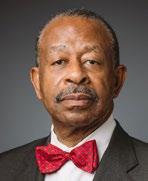
The law wasn’t Boykin’s first career, though he had considered pursuing it after earning a degree in English from Benedict College in 1974. His original inclination was to enter a joint program leading to a Master of Public Administration and Juris Doctor at Texas Southern University.
However, he stayed close to home, earning his MPA in 1977 at the University of South Carolina. That led him to work in public administration for the city of Anderson and for Clemson University, the Boykin & Davis website says. But, he said, his career was moving slowly.
That and two other needs — wanting to move closer to his hometown as his parents aged and supporting his wife, Brenda, and their two children — led him to apply to law school. Accepted at the University of South Carolina, he earned his JD in 1992.
“I was at a point where I could go back to
• Place of birth: Camden; largely reared in Sumter.
• Education: Bachelor’s in English, Benedict College, 1974; Master of Public Administration, 1977, and Juris Doctor, 1992, both from the University of South Carolina.
• Firms affiliated with: Associate, Childs and Duff; founding partner, Duff, Dubberly,
Turner, Tryon, White & Boykin; founding partner, Boykin & Davis.
• Civic engagement: Deacon and member of St. John Baptist Church; involved with NAACP and Access to Justice Commission; member of Omega Psi Phi Fraternity Inc.; former Rotary Club member.
• First job: “My first paying job (chuckles), I was still living in Camden, my aunt was a
housekeeper, and they needed yard work. I was 12 or 13 years old. I cut grass. I was paid 50 cents an hour.”
• Biggest career challenge: “For me, after I think about it, is always understanding who I am and where I am. I think it applies across the board. We must always remember who we are, what are our triggers, what are our weaknesses, and where we are.”
According to the South Carolina Access to Justice Commission, there is a “justice gap” in the state. That means there is a disparity between the civil legal needs of low-income individuals and the resources available to meet those basic human needs such as housing, family and financial matters.
The commission was founded by the state Supreme Court Commission to facilitate the collaboration that helps ensure equal access to civil legal assistance for all South Carolinians.
Hannah Honeycutt, its executive director, recently spoke with Lawyers Weekly about the agency, its goals and the technology it uses in furtherance of its mission to close the justice gap.
Honeycutt, a former assistant public defender, joined the commission in 2019. She earned her bachelor’s degree in English literature and Spanish from Wagner University and her law degree from the University of South Carolina School of Law.

A: The S.C. Access to Justice Commission was established in 2007 by the South Carolina Supreme Court in recognition of the need to expand access to civil legal assistance for people
of low income and modest means in our state. The Access to Justice Commission model is widespread throughout the country. It grew out of a recognition that the way justice system stakeholders often work — in silos, sometimes at cross purposes — just isn’t effective. Access to Justice commissions serve as a convener to bring these different players together to encourage sharing of information and collaboration when creating solutions to the access to justice problem. There are over 40 commissions or other entities dedicated to access to justice in the United States.
“Access to justice” can be a tough concept to wrap your mind around, and it means a lot of different things to different people. At its core, access to justice refers to someone’s ability to use the legal system to advocate for themselves and their interests. In its most basic sense, it just refers to someone’s ability to appear in court. More broadly, it encompasses the social context of the court system and the many systemic barriers (e.g., socioeconomic status, language, geographic location, physical disability) that might keep someone from being able to access it.
The SCATJ Commission focuses our efforts on seven core objectives:
• Assess the essential civil legal needs of South Carolinians of low income and modest means.
• Foster collaboration among stakeholders and legal service providers.
• Support increased funding and effi-
cient use of resources to expand access to justice.
• Support programs and resources to assist self-represented litigants.
• Encourage greater voluntary participation by members of the bar in pro bono legal service.
• Promote education and outreach about the gap in civil legal services.
• Recommend new initiatives and technology to expand civil access to justice.
At SCATJ, we encourage people to look at problems at a systemic level: What systems aren’t working? Where or what are the sticking points that are keeping people from being able to access our courts? What can we do as a court system and legal community to increase access?
What is the “justice gap,” and what does it look like in South Carolina?
A: The term “justice gap” refers to the difference between the need for civil legal services and the resources that are available to meet those needs. There’s no right to an attorney in the vast majority of civil cases, so if someone needs help, they’re going to have to find an attorney on their own. That often means applying for services from a legal aid organization.
In order to be eligible for most legal services, a family’s income must be at or below 125% of the federal poverty guideline. This amounts to $37,500 for a family of four. About 1 in 5 Americans (16.7%) is eligi-
ble for help from a civil legal aid program. In South Carolina, the percentage is 19.2%, which is right around a million people.
Our civil legal services providers do excellent work, but the problem is that these programs are chronically underfunded across the country. The Legal Services Corp., or LSC (a publicly funded nonprofit corporation established by Congress in the 1970s to fund civil legal aid programs in the United States), now estimates that because of these resource shortfalls, the organizations they fund can’t provide any or enough legal help for 71% of the problems brought to their doors each year, and that 92% of civil legal problems faced by low-income Americans receive inadequate or no legal help at all.
For our recent Statewide Civil Legal Needs Assessment, we found that 82% of South Carolina residents had a civil legal problem that they needed help resolving during the past five years. LSC estimates that 3 out of every 4 low-income households experience at least one civil legal problem each year.
Our needs assessment also collected data from legal aid organizations across the state that collectively employ 66 fulltime attorneys. Given how many South Carolinians are eligible for services, how often people need civil legal aid, and how few attorneys are available to help — South Carolina is facing an enormous justice gap.
A: We are so excited about our new SCATJ Legal Resource Finder. It’s a webbased app that guides users through a series of questions about the legal problem they are having, their household income and where they live, and recommends legal aid organizations and selfhelp information tailored to their specific needs. We developed the app in partnership with the Civ Tech Practicum class at Georgetown University School of Law and Neota Logic Inc. It is incredibly detailed and does a really good job of not recommending organizations that the person ultimately isn’t going to be qualified for
based on income, the case priorities of the organization or some other factor. The goal was to create a system that would come as close as possible to getting someone to the right organization on the first try.
The Legal Resource Finder is available on our website [georgetown.neotalogic. com/a/SCATJ-Legal-Resource-Finder-V2] for anyone to use, but we’ve also made posters and flyers with URLs and QR codes available to every single courthouse in the state.
We were hearing from court staff that they were seeing just huge numbers of people coming in and asking for legal help. If someone has a legal case pending, they often go to the courthouse to ask for help. However, court staff often feel constrained in the information they’re able to provide because of restrictions on giving legal advice. Being able to refer people directly to the Legal Resource Finder not only means that court staff don’t have to keep track of dozens of phone numbers; it also means that people looking for help get recommendations tailored specifically to them and might not have to come back again and again to ask for clarification or more information.
You were touting the recently released Statewide Civil Legal Needs Assessment. What can you tell me about that?
A: One of the commission’s core objectives is to assess the essential civil legal
needs of South Carolinians of low income and modest means, and we believe that we cannot recommend solutions without a comprehensive understanding of the problems before us. To that end, the commission released South Carolina’s first-ever Statewide Civil Legal Needs Assessment this past February in partnership with the South Carolina Bar and the NMRS Center on Professionalism at the University of South Carolina School of Law.
Research for the needs assessment was conducted by the University of North Carolina at Greensboro Center for Housing and Community Studies over the course of 18 months and included interviews with key justice system stakeholders; focus groups consisting of current and former legal aid clients and community members; two surveys — one of South Carolina attorneys and one of members of the public; and in-depth analysis of data from S.C. Court Administration, our state’s legal aid providers, and publicly available census and socioeconomic data.
The final report is both comprehensive and granular, bringing together quantitative and qualitative data about the legal needs of low- and moderate-income people in South Carolina and how they access justice in our state.
This report is so special because, for the first time ever, we have hard data to not only illustrate exactly what the problems are here but also to support meaningful,
The Access to Justice Commission model is widespread throughout the country. It grew out of a recognition that the way justice system stakeholders often work — in silos, sometimes at cross purposes — just isn’t effective.
Two university officials’ internal deliberations about a professor’s retirement plans and resistance to technology after not renewing her contract were not “direct evidence” of age discrimination, the 4th U.S. Circuit Court of Appeals has held.
The court affirmed the Western District of Virginia’s grant of summary judgment for the university on the plaintiff’s Age Discrimination in Employment Act, or ADEA, claim.

“Stated succinctly, [the plaintiff] has failed to demonstrate that age was the but-for cause of her 2018 nonrenewal,” U.S. Circuit Judge Robert B. King wrote. “[The plaintiff] was not meeting [the university’s] legitimate expectations at the time of her nonrenewal, in that she repeatedly failed to develop a digital art skillset.”
Senior Circuit Judge Diana Gribbon Motz and Judge Julius N. Richardson authored concurring opinions.
The opinion is Palmer v. Liberty
‘Could she do it?’
Richmond litigator Richard F. Hawkins III told Lawyers Weekly that he has moved the 4th Circuit for reconsideration and is ready to take Eva Palmer’s case to the U.S. Supreme Court.
He said there are two “big issues” with Liberty’s legitimate expectation argument.
“A year or two before she was let go, they asked Palmer to teach online
Continued From Page 11
tion “wiped the slate clean,” making any of her pre-promotion evaluations irrelevant.
King said that argument failed for two reasons.
“First, that contention is temporally flawed,” the judge wrote. “That is, Palmer has failed to explain why her performance in October 2016 means that she was performing adequately at the time of her nonrenewal — which was in April 2018.”
Further, King said “Palmer’s ‘clean slate’ contention overlooks the undisputed fact that, after her October 2016 promotion to full professor, Dean Hayes and Department Chair Smith had ongoing concerns about her lackluster technology and digital art skills.”
The court rejected Palmer’s reliance on its 2021 conclusion in Sempowich v. Tactile Systems Technology that a plaintiff with high-performance ratings weeks before an adverse employment action raised an inference that they were meeting their employer’s legitimate expectations.
“By contrast, Palmer was simply not meeting Liberty’s technology-related expectations up and until the time of her 2018 nonrenewal,” King wrote, noting that she received her “lone accolade” more than a year before her nonrenewal.
Finally, the court pointed out that Palmer’s claim would fail even if she had produced direct or circumstantial evidence of age discrimination.
“Palmer has failed to contend with the fact that the comments she characterizes as evidence of age discrimination — the retirement comments plus the resistant-to-change comment — were made subsequent to the Chair and the Dean having resolved not to renew her teaching contract for the 2018-19 school year,” King concluded. “Thus, it cannot be said that Liberty ‘would not have fired [Palmer] in the absence of age discrimination.’”
Continued From Page 7
law school. I was in my late 30s,” he said. “It has seemed to have worked so far.”
His practice focuses on education law, with an emphasis on school board-superintendent relations, personnel, employment, labor, higher education, local government, construction and civil rights, the Boykin & Davis website says. He also is certified by the Board of Arbitrator and Mediator Certification under the South Carolina Supreme Court, received the Compleat Lawyer Award in 2002 from USC Law’s alumni association and is active in multiple specialty sections of the South Carolina Bar Association.
His children have followed him into the profession. His son, Chad, practices
in Baton Rouge, Louisiana, and his daughter, Brittany, who now lives in London, remains a member of the South Carolina Bar.
Administrative issues other than recruiting key personnel also take up Boykin’s time with Legal Aid.
“We have funding from the national office,” he said. “There are grant agreements and grant obligations that we have to make. We work with the staff on issues that are coming forward.”
But trust in staff members’ work and professional judgment also are important, requiring him to strike a balance.
“The challenge is how do you provide guidance without meddling?” he asked rhetorically. “How do you talk to staff
without telegraphing the expected outcome?”
Another balancing act is to set legal service priorities; there are simply too many needs compared with the resources available. He quickly ticked off a list of areas where Legal Aid’s clients need help, including housing, access to benefits, domestic violence and immigration.
“We see where housing could be a challenge,” he said, especially considering the increasing corporate ownership of rental properties. Also, in eviction cases, “The tenant, without legal representation, is in a fairly vulnerable position.”
“Lives in crisis presents bigger challenges for legal services providers,” he said, quoting from a report by the South Carolina Access to Justice Commission. ◆
“At least two of our sister circuits have concluded that mere comments or inquiries about retirement — without more — fail to constitute direct evidence of age discrimination. The court agrees with and adopts that well-reasoned proposition.”
— U.S. Circuit Judge Robert B. King BOYKIN

Exclusively dedicated to the 1031 exchange business since 1988 – Investors Title Exchange Corporation provides exemplary qualified intermediary and exchange accommodation title holder services.

u hundreds of exchanges facilitated every year
u administered by a knowledgeable, experienced team of exchange attorneys and exchange specialists

u transactional integrity ensured via

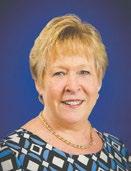
• safety of funds through Fidelity bonding, strict internal controls, and independent audits
• interest-bearing exchange accounts
• fast, dependable service and document preparation
“Rarely in our business is there truly only one choice in a partner/relationship. But when it comes to 1031 exchanges, Investors Title is the ONLY option for us.”
– Daniel S. Kadis, Centrex Properties, Inc.“Given the added risk associated with reverse exchanges, we have developed a great comfort level over the years working with the Investors Title team. We couldn’t imagine a better partner.”
– George T. Barnes, Vanguard Property Group“Not only is the staff very responsive to my calls and emails, they are also very knowledgeable. With representation on the Board of Directors for the Federation of Exchange Accommodators, I know that I can rely on the exchange team for up-to-date advice and guidance on the unusual issues that always seem to come up.”

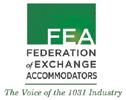 – Donald VonCannon, Esq., Allman Spry Attorneys at Law
– Donald VonCannon, Esq., Allman Spry Attorneys at Law
984.364.2752 | exchanges@invtitle.com
Subsidiary of Investors Title Company (NASDAQ – ticker symbol “ITIC”)

requirement are in listing relevant contractual provisions and summarizing the employer’s position. Besides that, the only other hint that the arbitrator might have actually considered the requirement is the award’s description of information that the employer had when it terminated Black’s employment.
Where the arbitrator ignored the parties’ agreed upon procedural rules for conducting the arbitration, the arbitration award failed to draw its essence from the parties’ collective bargaining agreement.

We reverse the arbitration award, which reinstated a terminated union member, Sarah Black.
Article 13, § 4(e) of the parties’ collective bargaining agreement (CBA) demands that, in “all discipline cases, the arbitrator shall determine whether [the plaintiffemployer] had a reasonable basis for concluding that the employee engaged in the conduct for which he/she is being disciplined.” We refer to this provision as the “reasonable basis determination.”
Section 4(e) also says, “If a court of competent jurisdiction finds that the Arbitrator abused his or her discretion in any way or if the Award is contrary to this Agreement in any way, the Award shall be deemed not to draw its essence from the Agreement and shall be vacated.”
Here, the arbitrator never explicitly made the required reasonable basis determination. The award’s only references to the reasonable basis determination
Yet, rather than looking backward to the information the employer had at the time of its discharge decision, the arbitrator considered the evidence presented at the time of the hearing. Thus, the arbitrator failed to make the required reasonable basis determination.
Neither party has pointed us to a previous case in our circuit in which an arbitrator ran afoul of a clear
procedural requirement laid out in the parties’ arbitration agreement.
Our deferential standard for determining whether an arbitrator erred substantively is rooted in the contractual nature of arbitration. If the parties agree to resolve disputes by arbitration, we defer to the determinations made in the process the parties agreed to.
Here, however, the CBA limits the arbitrator’s power. It requires that the arbitrator make the reasonable basis determination. And it premises the legitimacy of any arbitration award on the arbitrator’s complying with that directive. It even provides that any award that is in any way contrary to the CBA — which includes that directive — “shall be deemed not to draw its

Charleston School of Law in Charleston, South Carolina welcomes applications for full-time, tenure-track faculty. The School is presently looking for candidates interested in teaching one or more of the following subjects: Constitutional Law; Business Organizations; Torts; Professional Responsibility; Property; and, Tax. Also, we welcome applications from candidates who incorporate legal skills and drafting in their approaches to teaching. However, our curricular needs are flexible, and we welcome applications from all candidates whose teaching, service, or research interests will promote the School’s goals of excellent teaching, scholarship, and service.
Ideal candidates will show commitment to becoming stellar teachers and passionate, enthusiastic colleagues, who are willing to invest considerable energy and effort in service and institution building by collaborating with the rest of the faculty to achieve excellence at the School of Law. We value candidates with practice experience who will bring the real world of lawyering to the classroom. We also value previous teaching experience, including as adjunct faculty, at a law school or college. However, having completed visiting assistant professor programs, fellowships, Ph.D. degrees, and/or LL.M. degrees are not prerequisites. We are looking, instead, for a demonstrated ability to grow into the role of teacher and scholar.
Charleston School of Law is an ABA fully-accredited institution reinvigorating the study of law by offering a rich, comprehensive three-year program rooted in excellence. Our campus is located in the Upper King Street district of historic, downtown Charleston, S.C., which Travel + Leisure Magazine named as the 2023 Number One Best City in the United States for the eleventh consecutive year. The School of Law was founded in 2003 with a mission to instill the values of public service and professionalism in its graduates. Key goals for the School are student success and providing opportunities to historically underrepresented groups in the profession.
The School of Law prides itself on having a talented and accessible faculty and staff. Princeton Review regularly ranks Charleston School of Law as a top institution for faculty accessibility, teaching quality, and resources for women. The School’s Faculty bring significant practice experience to the classroom and include former law firm partners, state and federal prosecutors, defense attorneys, corporate counsel, and military veterans.
Applicants should submit a cover letter explaining their interest in a position at Charleston School of Law specifically, the subjects the applicant would be interested in teaching, a curriculum vitae, research agenda, and any teaching evaluations received to the Committee on Faculty Recruitment, Retention & Inclusion at facultyrecruitment@charlestonlaw.edu. Review of applications is ongoing, although we recommend submission of materials as soon as possible. Should you have any questions for the Chair of the Committee, please feel free to email Dylan Malagrinò, Associate Dean for Faculty Research & Development and Professor of Law, at: dmalagrino@charlestonlaw.edu.
The Charleston School of Law is an equal opportunity employer and does not discriminate against any individual or group on the basis of gender, sexual orientation, gender identity or expression, age, race, color, religion, national origin, veteran status, genetic information, disability, or any other legally protected class.
essence from the [CBA] and shall be vacated.”
We cannot ignore such clear and unambiguous procedural requirements. Because the arbitration award failed to make the required reasonable basis determination, it does not “draw its essence” from the CBA. And we must vacate any arbitration award that fails to draw its essence from the parties’ arbitration agreement. Reversed.
Advantage Veterans Services of Walterboro, LLC v. United Steel, Paper & Forestry, Rubber, Manufacturing, Energy, Allied Industrial & Service Workers International, Local 7898 (Lawyers Weekly No. 001-071-23, 12 pp.) (Marvin Quattlebaum, J.) No. 22-1268. Appealed from USDC at Charleston, S.C. (Margaret Seymour, S.J.) Lewis Traywick Duffie and Aaron Saltzman for appellant; Keren Wheeler for appellees. United States Court of Appeals for the Fourth Circuit
Even if plaintiff was effectively served with the trial court’s order –granting summary judgment for defendants – under Fed. R. Civ. P. 77(d), she did not receive notice for purposes of Fed. R. App. P. 4(a)(6) given that the mailing was returned to the clerk of court as undeliverable.
We vacate the district court’s grant of plaintiff’s Rule 4(a)(6) motion and remand for defendants to be heard.
Plaintiff, an attorney who does not practice in South Carolina, brought this lawsuit pro se. She was warned of her duty to notify the court of any change of address. She failed to do so; consequently, she did not receive the clerk’s
mailings of (1) a magistrate judge’s recommendation that defendants’ summary judgment motion be granted or (2) the district court’s order adopting the recommendation.
Plaintiff learned of the summary judgment order shortly before the time for appeal expired. She mailed her notice of appeal, but it was not delivered to this court before the appeals deadline.
In the district court, plaintiff moved for an extension of time to file her appeal, and the district court summarily granted the motion without giving defendants an opportunity to respond.
Fed. R. App. P. 4(a)(6) provides, “The district court may reopen the time to file an appeal for a period of 14 days after the date when its order to reopen is entered,” but only if its three conditions are satisfied. The court must find that
(1) “the moving party did not receive notice under Federal Rule of Civil Procedure 77(d) of the entry of the judgment or order sought to be appealed within 21 days after entry;”
(2) “the motion is filed within 180 days after the judgment order is entered or within 14 days after the moving party receives notice under Federal Rule of Civil Procedure 77(d) of the entry, whichever is earlier;” and (3) “no party would be prejudiced.”
By its own terms, Rule 4(a)(6) must be read in conjunction with Fed. R. Civ. P. 77(d), which governs “serving notice” of an order or judgment. “Immediately after entering an order or judgment, the clerk must serve notice of the entry, as provided in Rule 5(b).” Relevant here, Fed. R. Civ. P. 5(b)(2)(C) provides, “A paper is served under this rule by: ... mailing it to the person’s last known address—in which event service is complete under mailing.” Rule 77(d) adds, “Lack of notice of the entry does
not affect the time for appeal or relieve — or authorize the court to relieve — a party for failing to appeal within the time allowed, except as allowed by Federal Rule of Appellate Procedure (4)(a).”
Plaintiff contends that while the clerk’s unsuccessful mailing of the judgment to her prior address effected service under Civil Rule 77(d), it was not receipt of notice for purposes of Appellate Rule 4(a) (6). We agree.
This court has yet to address what constitutes “notice” for purposes of Appellate Rule 4(a)(6). Appellate Rule 4(a)(6) talks of “receipt” of a document under Civil Rule 77(d), but Civil Rules 77(d) and 5(b) concern “service” rather than receipt. While Rule 5(b)(2)(C) describes what it means to “serve” a document, it does not tell us what service equals receipt.
With respect to Rule 4(a)(6)’s first requirement, service pursuant to Rule 5(b)(2)(C) is not the functional equivalent of notice for purposes of Rule 4(a)(6) where the return of mail as undeliverable establishes that notice of a judgment or order was in fact not received. Plaintiff has satisfied Rule 4(a)(6)(A) because the unrefuted evidence establishes that the clerk’s mailing sent in accordance with Rule 5(b) (2)(C) was returned as undeliverable.
Given that plaintiff did not receive notice of the entry of judgment because it was returned as undeliverable, we agree with plaintiff that the second precondition was met when she filed her motion to reopen on June 16, 2020 — 55 days after the entry of judgment on April 22, 2020.
Finally, defendants have not argued that they were prejudiced by the reopening of the time to file a notice of appeal.
However, Rule 4(a)(6) allows a district court to deny a motion to
See Page 16
reopen even if the movant meets the rule’s three requirements. We remand to allow defendants to be heard.
Vacated and remanded.
Shuler v. Orangeburg County Sheriff’s Department (Lawyers Weekly No. 001-077-23, 21 pp.) (Roger Gregory, C.J.) No. 20-6778. Appealed from USDC at Orangeburg, S.C. (Mary Lewis, J.) David Mitchell Parker for appellant; Andrew Lindemann and Norma Jeff for appellees. United States Court of Appeals for the Fourth Circuit.
At his trial for the attempted murders of Ashley R. and Malik Myers, when defendant moved to dismiss, the state responded with an assertion that it was relying on the doctrine of transferred intent, but defendant never gave the trial court the opportunity to consider the argument he raised for the first time on appeal — that the doctrine of transferred intent does not apply to specific intent crimes, such as attempted murder. Consequently, this issue was not preserved for appellate review.
We reverse the Court of Appeals’ decision and affirm defendant’s convictions and sentences for the attempted murder of Ashley R. and possession of a weapon during the commission of a violent crime.
State v. Williams (Lawyers Weekly No. 010-030-23, 3 pp.) (Per Curiam)
Appealed from Sumter County Circuit Court (Howard King, J.) On writ of certiorari to the Court of Appeals. Alan McCrory Wilson, William Blitch and Ernest Adolphus Finney for petitioner; Robert Michael Dudek for respondent.
At defendant’s trial for the murder of his wife, defendant’s father testified that he knew his son well. The state impeached the father with a screenshot of defendant’s Facebook profile picture and its accompanying caption: “I know who I am. I’m a dude, playing a dude, disguised as another dude.” The admission of this evidence was error. A witness may not be impeached by extrinsic evidence of a collateral matter.
Nevertheless, given the substantial evidence of defendant’s guilt, there is no good-faith argument that the admission of the Facebook caption affected the outcome of the trial. The error in admitting the caption was harmless.
We modify the Court of Appeals’ opinion, which upheld defendant’s murder conviction, and affirm.
State v. Passio (Lawyers Weekly No. 010-035-23, 4 pp.) (John Kittredge, J.) Appealed from Jasper County Superior Court (Carmen Mullen, J.) On writ of certiorari to the Court of Appeals. Elizabeth Anne Franklin-Best for petitioner; Alan McCrory Wilson, Donald Zelenka, Melody Jane Brown, William Joseph Maye and Isaac McDuffie Stone for respondent. South Carolina Supreme Court
When a petitioner who, as a juvenile, was sentenced to life without parole seeks resentencing pursuant to Aiken v. Byars, 410 S.C.
534, 765 S.E.2d 572 (2014), neither the petitioner nor the state has a burden of production or persuasion.
We affirm the circuit court’s imposition of a sentence of life without parole.
In 1999, when he was 16, petitioner and another juvenile escaped from juvenile detention by brutally murdering the owner of the farm on which they were working and stealing the man’s truck. The boys drove the truck on a violent crime spree and then led police on a 30-mile high-speed chase, firing shots at pursuing law enforcement vehicles. Petitioner was sentenced to life without parole.
After the decisions in Miller v. Alabama, 567 U.S. 460 (2012), and Aiken , petitioner sought resentencing. The circuit court again sentenced petitioner to life without parole.
We now clarify that in an Aiken resentencing hearing — as with almost any other sentencing proceeding — there is no burden of proof or persuasion placed on either party and there is no presumption for or against any sentence. Instead, both the state and the defendant have a mutual burden of production to provide the resentencing court with any evidence and arguments they believe bear on the factors set out in Aiken or that otherwise relate to what should be the appropriate sentence.
The sentence to be imposed is within the discretion of the resentencing court. In exercising this discretion, the resentencing court may give no deference to the prior sentencing court’s decision to impose life without parole. The resentencing court must consider all the evidence and arguments presented at the resentencing hearing and impose an appropriate sentence without any regard to the prior sentencing court’s thought process or decision.
When sentencing courts consider
the Aiken factors and all the evidence that relates to those factors, because of children’s diminished culpability and heightened capacity for change, appropriate occasions for sentencing juveniles to this harshest possible penalty will be uncommon. The decision belongs to the resentencing court, and this court will not recognize any presumption nor impose any burden of proof or persuasion. We trust our circuit judges are well-equipped to make the right decision in each case.
Here, the circuit court considered the transcript from and other evidence surrounding the original guilty plea to murder. The court heard extensive testimony from an expert psychologist who interviewed petitioner several times and reviewed thousands of pages of his records. The court also heard testimony from four other witnesses the state and petitioner presented regarding the circumstances of the crime and petitioner’s personal background and history. The court then heard arguments from the attorneys on both sides and analyzed the Aiken factors in light of those arguments.
Aiken requires that juveniles “receive an individualized hearing where the mitigating hallmark features of youth are fully explored” before being sentenced to life without parole. Here, the resentencing court gave petitioner just such an individualized hearing and soundly exercised its sentencing discretion without placing any burden of proof or persuasion on petitioner nor giving any deference to the previously imposed sentence. Affirmed.
State v. Smart (Lawyers Weekly No. 010-034-23, 7 pp.) (John Few, J.)
Appealed from Clarendon County Circuit Court (Craig Brown, J.) On writ of certiorari to the Court of Appeals. Joanna Katherine Delany for petitioner; Alan McCrory Wilson,
Jeffrey Young, Donald Zelenka, Melody Jane Brown and Ernest Adolphus Finney for respondent. South Carolina Supreme Court
Although the parties’ legal malpractice policy prohibits the defendant-insurer from settling a malpractice claim without the plaintiff-attorney’s consent, if the attorney withholds her consent, the policy then relieves the insurer of its duty to defend and caps proceeds at the amount the insurer planned to offer to settle the claim.
We affirm the circuit court’s grant of judgment on the pleadings for the insurer.
In the underlying legal malpractice suit, attorney Adele Pope, acting as special administrator for the estate of one of the plaintiff-attorney’s former clients, alleges that plaintiff committed malpractice when she obtained a lump-sum payment from a trust. While the trust was making $55,000 annual distributions to the client, attorney Pope was collecting more than $18,000 per year in attorney’s fees. A lower court granted Pope one-third of the lump sum trust payment, and plaintiff failed to timely appeal.
The defendant-insurer sought to offer the estate $100,000 to settle its legal malpractice claim against plaintiff, but plaintiff objected, noting that a settlement would convey the impression that the claims were meritorious, reflect negatively on her reputation and standing in the legal community, and harm her firm’s future insurability with other professional liability carriers.
The “hammer clause” in the parties’ policy begins, “The Insurer shall not settle any Claim without
the Named Insured’s Consent.” However, the hammer clause goes on to say that, if the insured refuses to consent to any settlement recommended by the insurer, which is acceptable to the claimant, and instead elects to contest the claim, then the insurer’s liability for the claim “shall not exceed the amount for which the Claim could have been settled, including Claims Expense incurred up to the date of such refusal. ... In the event that the Named Insured refuses to consent to any settlement as set forth in section VI. D. [addressing the policy’s limits of liability and deductible], the insurer’s right and duty to defend such claim shall end upon the date of such refusal.”
Plaintiff brought this action seeking a declaratory judgment regarding the parties’ respective rights and obligations under the policy. The defendant-insurer counterclaimed, and the circuit court granted judgment on the pleadings for the insurer, requiring plaintiff to cooperate with the insurer in the defense and settlement of the claim.
Discussion
The clear language of the policy gives the insurer the right to control the defense of the underlying case. The policy also requires plaintiff to cooperate with the insurer in the defense and settlement of any claim.
Pursuant to the policy’s hammer clause, if the insurer recommends a settlement to plaintiff that is acceptable to the estate, plaintiff has the right to reject it and continue defending the case. However, such a rejection ends the insurer’s duty to defend and caps its liability at the proposed settlement amount.
The circuit court correctly analyzed the clear and unambiguous language of the policy in finding plaintiff could not prevent the
See Page 18
Continued From Page 17
insurer from negotiating with the estate to settle the Pope claim. The policy requires plaintiff to cooperate with the insurer in the defense and settlement of Pope’s action; plaintiff is free to choose not to consent to a settlement, but such refusal triggers the consequences of the hammer clause.
Even if it was reasonable for plaintiff to reject the insurer’s settlement-offer proposal, the hammer clause does not include a “reasonableness” modifier.
Affirmed.
Ballard v. Admiral Insurance Co. (Lawyers Weekly No. 011-040-23, 13 pp.) (Stephanie McDonald, J.)
Appealed from Lexington County Circuit Court (Walton McLeod, J.) Eric Steven Bland, Scott Michael Mongillo and Ronald Richter for appellants; Adele Jeffords Pope and Wesley Brian Sawyer for respondents. South Carolina Court of Appeals
When she appealed a family court order holding her in criminal contempt, the appellant-attorney served notice on the family court judge and the county clerk of court. The Attorney General’s office informed this court that it would be appearing pursuant to S.C. Code Ann. § 1-4-40 (the Attorney General “shall appear for the State in the Supreme Court and the court of appeals in the trial and argument of all causes, criminal and civil, in which the State is a party or interested . . . . “). We decline the state’s suggestion to find a jurisdictional defect in this case.
We reverse the family court’s criminal contempt order.
We agree with the state that the
process for appealing an order of contempt should be better delineated, and it would be helpful to have clarification identifying who “the respondent” or “adverse party” is for purposes of the Appellate Court Rules in a case such as this one. However, it is not this court’s place to declare such a rule— particularly in light of the odd manner in which this hearing was conducted and the family court’s problematic behavior. This issue would be better addressed through a statutory definition or by proposed amendment of our court rules followed by the necessary legislative review.
In the custody case below, Mother moved to recuse the chief family court judge because of his relationship to Father and Father’s counsel. Mother and her counsel, appellant Martell, both filed affidavits in support of the recusal motion.
At the tense and combative hearing on the recusal motion, the family court judge engaged in hostile questioning, vehemently and intemperately denied all allegations set forth in the affidavits, questioned Mother in a way she described as “bullying,” and — after demanding that Martell take the stand to discuss the allegations raised in her own affidavit — ignored Martell’s request for an recess to allow her to contact counsel or otherwise assess whether she should testify, instead demanding an immediate “yes or no.” The judge held Martell in criminal contempt when it should instead have given her the opportunity to seek counsel and consider whether she was able to properly obey the court’s demands. Reversed.
In re Martel (Lawyers Weekly No. 012-027-23, 6 pp.) (Per Curiam) Appealed from Beaufort County Family Court (Peter Fuge, J.) Dayne Phillips for appellant; Alan McCrory Wilson and Mark Reynolds Farthing
for the state. South Carolina Court of Appeals (unpublished)
Plaintiff was injured when a scrap metal truck struck her vehicle. The truck was being driven by the employee of an independent contractor of the principal, defendant Metal Recycling Services LLC. If plaintiff can prove that Metal Recycling Services was negligent in its selection of the independent contractor and that such negligence was a proximate cause of her injuries, plaintiff can state a claim against Metal Recycling Services.
In response to a question certified to us by the 4th Circuit, we answer, “Yes, the principal in an independent contractor relationship may be subject to liability for physical harm proximately caused by the principal’s own negligence in selecting the independent contractor.”
Plaintiff will have to show (1) a want of reasonable care on the part of the principal, (2) that the work of the contractor involved a risk of physical harm unless it was skillfully done, (3) that the principal did not select a contractor who was sufficiently competent and careful, and (4) that the principal’s negligence in selecting the contractor was a proximate cause of plaintiff’s injury.
Ruh v. Metal Recycling Services, LLC (Lawyers Weekly No. 010-03623, 10 pp.) (John Few, J.) On certification from the U.S. Court of Appeals for the Fourth Circuit. James David George, Graham Newman and Mark Chappell for plaintiff; Christopher Ogiba and Scott Taylor for defendant; Robert Daniel Moseley, Robert Charles Rogers and Whitney Harrison for amici curiae. South Carolina Supreme Court ◆

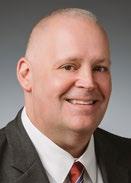
Reggie Belcher enjoys representing employers who value and respect their employees, and treat them even better than the law requires.
As an employment lawyer with Turner Padget in Columbia, Belcher’s goal is to help his clients excel, and that makes him feel he is contributing to both the business community and the legal profession.
Before enrolling in law school, Belcher already had two business degrees, and thought of law school was a natural progression.
“Growing up, I didn’t know any lawyers or much about the legal profession, but I believed that somebody with two business degrees should represent and defend employers,” he said.
He also credits his parents with supporting his career pursuits.
“I did not know much about the legal profession, but my parents encouraged me to take advantage of my educational opportunities,” he said. “I knew that getting a law degree was tough, and I’ve always been competitive, so I decided to give law school a shot to see how I would stack up.”
Bev Carroll says the television show “Perry Mason” sparked her interest in becoming a lawyer.
But after graduating from Winthrop University, her career took a detour when she began teaching history and coaching basketball, she said in an interview on The Bandit Room, a Rock Hill podcast. She loved it.
“Teaching was one of the best experiences of my life,” she said.
Carroll’s mother encouraged her to stay on the path to a career in law, so she enrolled at the University of South Carolina and started her career practicing insurance defense. She eventually migrated into employment law and enjoys it.
Today she represents employers as an attorney, mediator and certified employment law specialist at Morton & Gettys in Rock Hill.
A former president of the South Carolina Bar, Carroll says she loves her career for its learning opportunities.
“Every day I learn something new, and I think that is what has kept me engaged in this career so long,” she said.
“I grew up watching him prepare for trials, and I even got to see him argue in the courtroom on a few occasions,” Dunlap said. “His enthusiasm for the law was contagious.”
Today, she is a shareholder in Baker Donelson’s Charleston office, where she represents a variety of employers as a member of the labor and employment group.
“I chose employment law because it centers on the treatment of people in the place where they often spend the majority of their time,” she said. “It is rarely, if ever, boring and offers the opportunity to learn about business operations across a vast array of industries.”
Dunlap especially cherishes the problem-solving aspect of working with her clients.
“Human resources is a challenging role in any organization, and I love having the opportunity to make the jobs of human resources professionals a little easier,” she said.
Leadership is a hallmark of Kenya Miller’s career as a workers’ compensation and insurance defense lawyer at Dickie, McCamey & Chilcote in Lancaster.

She is a shareholder and managing attorney at the firm’s South Carolina office and co-chair of the diversity and inclusion committee.
In addition to her practice, Miller conducts seminars on workers’ compensation law and claims investigation.
Before joining Dickie McCamey, she was a partner at Miller Lawrence, a law firm focused on defending South Carolina workers’ compensation claims.

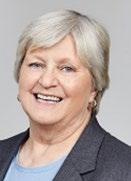
Miller is active in her community, church and profession. Among her professional activities, she is on the board of the South Carolina Association of Black Lawyers and the South Carolina Workers’ Compensation Educational Association
She has held leadership roles in the Lancaster County Chamber of Commerce and Lancaster County Habitat for Humanity and is president of the Young Women’s Auxiliary at Mount Canaan Baptist Church.
In 2022, she was named to Savoy magazine’s “Most Influential Black Lawyers.”
Professionally, nothing gives Paul Porter more pleasure than going all-in for his clients.
“I get to help people recover from their toughest career troubles, and I’m free to be creative doing it,” he said. “I can put it all on the line for my clients at trial, giving me the added bonus of competitive victories in my career, along with tough defeats that I learn from.”
Porter grew up in a blue-collar family in Greenville and decided by the third grade that he wanted to be a lawyer.
“I viewed it as a way to improve my lot in life,” he said.
Porter is a partner who works employee-side employment law and business litigation at Cromer, Babb, Porter & Hicks.









He credits attorney Lewis Cromer as his inspiration.
“Lewis’ approach to the law, his passion for helping working people, and his creativity, perseverance and integrity inspired me to become an employment lawyer,” Porter said.
Janet Rhodes’ mother inspired her to pursue a career in employment law.
In an interview for South Carolina Super Lawyers magazine, Rhodes said her mother was the only woman working in the IT division of a large company with about 20 men.


“She was always paid less and worked substantially harder,” Rhodes remembered. “At that time, I had no experience in law, there were no lawyers in the family, but I knew I wanted to make a difference for employees who are mistreated.”
Rhodes joined the Mike Kelly Law Group in 2022. She represents employees and employers.
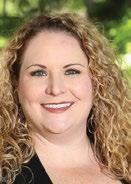
She has represented clients in matters involving wrongful termination, discrimination, wage disputes and equal pay. She has represented clients who have employment contract disputes, including noncompete agreements.

As an undergraduate student at Wofford College, Rhodes excelled in sports, achieving NCAA Division I All-Conference honors for the javelin in her junior and senior years.



Helping talented people and perpetually learning more about his field are the ideals that drive Steve Savitz.
“The constant personal contact helping clients and getting to know them is most rewarding,” he said. “Every day presents new and exciting issues, many of which need immediate attention.”
Savitz is a partner at Gignilliat, Savitz and Bettis in Columbia, where he practices labor and employment law, representing employers.
His first real experience in employment law was in his role with the South Carolina Office of the Attorney General, where he represented most state agencies, their boards and directors, and the State Employment Grievance Committee.
“I recognized early that in this complex world, people need legal advice and advocacy regardless of their educational backgrounds and experiences,” he said. “Being able to help others understand the law as it applies to their lives, to prevent difficulties, and to help resolve legal issues has always appealed to me.”
Nekki Shutt grew up in a family so passionate about learning that they considered higher education a requirement, not a choice.
“Most of my relatives are in academia, but my mother chose to practice law instead,” she said.
Shutt grew up watching her mother fight for indigent individuals to get justice in the criminal court system.
“I followed my mother into the legal profession,” Shutt said. “One of my younger brothers did, too.”
Now a partner at Burnett Shutt McDaniel, Shutt is a certified specialist in labor and employment law with a focus on employee benefits under the Employee Retirement Income Security Act. She has practiced for over 30 years, but it was her prior work experience that proved the springboard to her success in the law.

Shutt spent two years working in the human resources department of a publicly traded insurance company, and eventually became the company’s corporate recruiter.
“Working in human resources inspired me to make employment law my life’s work,” she said.
Chris Gantt-Sorenson wanted to be a lawyer by the time she was 15.
“I was in debate club from high school through college, and that is what drew me to law,” she said. “In college, I enjoyed moot court so much, I fell in love with trial work.”
Two years into her career, she took a $20,000 pay cut to practice with the State Grand Jury Division of the S.C. Attorney General’s Office in exchange for being first chair on the cases she handled. She enjoyed four years of intense trial work before returning to private practice in 1997, when she joined Haynsworth Sinkler Boyd where she grew an employment litigation practice.
Today, she is the firm’s employment law practice team leader and works with all types of employers.
“I spent my spare time learning employment law and began presenting where I could, which led to work that eventually turned into a full-time practice, and I love it,” she said.
One might think that for Hagood Tighe, a third-generation attorney, the law is simply in his blood.
But he admits it took him a while to find his passion for the field.
Tighe worked in politics and as a commercial real estate broker before entering law school. Today, a partner at Fisher Phillips, he serves as president of the South Carolina Bar.
Tighe thought he would practice with his father, but a clerkship with a labor and employment firm steered him in a new direction.
“Once I got into the employment law practice, I just couldn’t give it up,” he said. “My father’s firm didn’t do this kind of work, but he and I send clients back and forth, and we still get to work together.”
Tighe thrives on helping executives and human resources professionals be better employers.
“New and challenging issues come up every day, and I feel blessed to have this career,” he said.

$3.25 MILLION SETTLEMENT
Action: Product liability

Injuries alleged: Loss of portions of two fingers and other injuries to right hand and future significant medical needs
Case name: Withheld
Court/case no.: Withheld
Mediator: Kip Darwin
Amount: $3.25 million
Date: June 27, 2023
Attorneys: Cooper Wilson, John Hudson
$2.65 MILLION SETTLEMENT
and Mullins McLeod of McLeod Law Group and Tara Leaphart of Tara Leaphart, Attorney at Law, Charleston and Columbia (for the plaintiff)
A minor injured their hand in a workout machine at a local facility. The minor’s counsel also alleged that the facility failed to properly maintain the machine, to include not utilizing the suggested locking mechanism when the machine was not in
use, and that the contractor hired to service the machine failed to properly do so.
Counsel for the defendants argued the case based on liability and damages, including defenses of various applicable caps.
Before the case was settled at mediation, it was litigated for almost two years, during which time plaintiff ’s counsel developed helpful testimony against both defendants regarding their individual roles in maintaining and servicing the machine. ◆
Action: Auto accident
Injuries alleged: First client was airlifted to an emergency room with spinal cord, head and neck injuries and a broken leg; second client was taken to an emergency room with spinal cord, head and neck injuries
Case name: Withheld
Court/case no.: Withheld
Judge: Withheld
Amount: $2.65 million
Date: March 8, 2023
Most helpful expert: RM Balgowan
Forensic & Engineering Service
Attorneys: Christopher Hart of Hart
Law and Gary Poliakoff of Poliakoff &
Associates, Columbia and Spartanburg (for the plaintiff)
A husband and wife were driving home from a gospel concert when an uninsured driver slammed into the rear of their vehicle. The second driver’s vehicle then sliced through the median cable barrier at an estimated 100 mph and crashed head-on into a third vehicle, causing the third vehicle to flip several times and leaving its passenger dangling from the roof held only by the seat belt.
The uninsured driver fled his vehicle on foot, witnesses said; however, he was identified by personal belongings left in his vehicle and later arrested and charged with hit and run causing great bodily injury.
Though the accident happened only a few miles from a hospital emergency room, the wife’s injuries were so severe she had to be airlifted there.
Plaintiff ’s counsel filed a lawsuit against the company that installed the median cable barrier, the highway department and the company that performed maintenance on the cable barrier, alleging defective design, installation, repair and maintenance. The defendants were on prior notice of those issues after several previous vehicles crashed through the cable barrier.
Recovery was from all the defendants and from the clients’ uninsured motorist policy.
Both clients have physically recovered and are doing well. ◆
The Verdicts & Settlements page is a forum for lawyers in South Carolina to share results of recent cases. It is intended as a tool to help in determining case values for trial or settlement. Submissions are provided by one of the lawyers in the case. South Carolina Lawyers Weekly reserves the right to edit submissions for style, language and length.
BOSTON — Harvard University’s excess insurance carrier had no obligation to cover $15 million in costs incurred in the school’s failed bid to defend its race-conscious affirmative action policy, the 1st U.S. Circuit Court of Appeals has ruled.
Harvard argued that the lack of formal notice within the deadline set by the terms of its policy with defendant Zurich American Insurance should not affect coverage because the insurance carrier had actual and constructive notice of the highly publicized lawsuit and was not prejudiced by Harvard’s failure to report the claim in a timely manner.
But the court concluded recognizing coverage under the circumstances was precluded by applicable Massachusetts law as established by the state’s Supreme Judicial Court and as repeatedly applied by federal courts within the 1st Circuit.
“Staying within the borders of this well-beaten path, we hold that the failure to give notice according to the policy’s
terms and conditions forfeits any right to coverage,” Circuit Judge Bruce Seyla wrote for a unanimous panel.
Further, the panel emphatically rejected Harvard’s argument that the 1st Circuit should recognize an “actual notice” exception to the general rule adopted by the state’s highest court.
“Harvard — which could have sued in a Massachusetts court and argued for a modification of that state’s substantive law — opted instead to avail itself of a federal forum,” Seyla wrote. “As we have admonished in earlier cases, a plaintiff ‘who made a deliberate choice to sue in federal court rather than in a [Massachusetts] state court[] is not in a position to ask us to blaze a new trail that the [Massachusetts] courts have not invited.’”
The panel’s 16-page decision in
Harvard College v. Zurich American Insurance affirms a 2022 ruling by U.S. District Court Judge Allison D. Burroughs.
Harvard’s excess policy with Zurich had a $15 million limit and covered claims made between Nov. 1, 2014, and Nov. 1, 2015. The policy required the policyholder to report any claims within 90 days after the end of the policy period.
Though Harvard sought coverage from its primary insurer, AIG, in 2014 when the admissions lawsuit was filed, it did not notify Zurich of a claim until May 2017, 1½ years after the policy’s deadline.
On June 29, the U.S. Supreme Court struck down affirmative action in college admissions, declaring that race cannot be a factor in admission decisions.
The court’s decision in Students for Fair Admissions v. Harvard invalidated affirmative action plans at Harvard. A similar ruling was handed down in Students for Fair Admissions v. University of North Carolina.
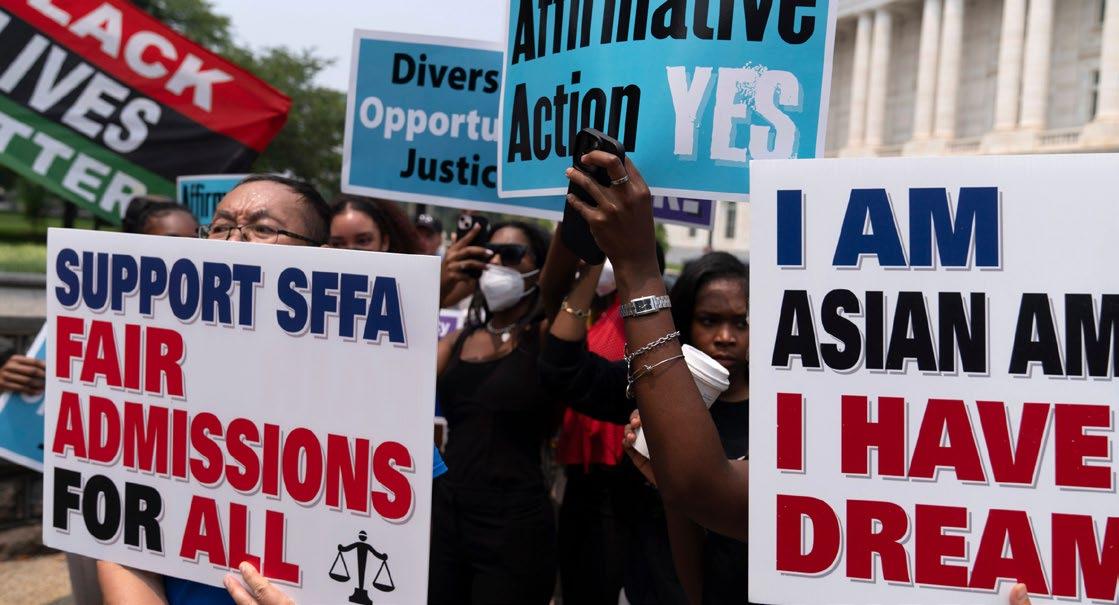
Stephanie Brown has joined the Hayes Law Firm in Charleston. Her practice includes construction litigation, insurance, bad faith, and personal injury,
Seven attorneys, including five new shareholders, have joined the Greenville office of Maynard Nexsen. They and their areas of practice are: Bo Russell, counsel to corporate entities, venture and growth-oriented businesses, private equity funds, financial institutions and real estate development companies; Rivers Stilwell, business, commercial litigation, public procurement, economic development, and construction; Lane W. Davis, complex litigation, including business torts, health care, managed care and securities; Giles Schanen, employment law, trade secrets and noncompete litigation, product liability, and commercial litigation; Lee Kiser, mergers and acquisitions, private equity, emerging and growth-oriented companies, and corporate governance; Nikki Lee, private markets and corporate and business transactions; and Elizabeth Edmondson, employment, labor, commercial litigation and business torts. Russell, Stilwell, Davis, Schanen and Kiser joined as shareholders.
The Shumaker law firm of Charleston is seeking Mansfield Rule certification in 2023-24. The Mansfield Rule seeks to increase and sustain diversity in law firm leadership by broadening the pool of candidates considered for leadership and governance roles, equity partner promotions, formal client pitch opportunities, and senior lateral positions.
Fourteen lawyers from Nelson Mullins’ office in Greenville were recognized as the top attorneys in their field
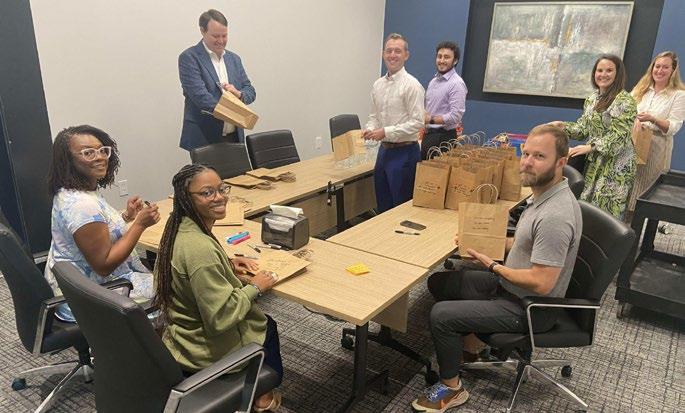
in the city in the inaugural Top Lawyers list published by Talk Greensville magazine. The lawyers were chosen by ballot by other attorneys in the city. The lawyers and their practice areas are: Benjamin A. Barnhill, banking and financial; Brittany M. McIntosh, corporate finance, mergers and acquisitions; David C. Dill, commercial litigation; Dowse Bradwell “Brad” Rustin IV, banking and financial; Daniel C. Lumm, technology virtual; Henry “Buzz” Burwell, immigration; Erik K. Graben, securities; John Jennings, securities; Lindsay L. Builder, commercial litigation; Neil C. Jones, intellectual property rights; Neil E. Grayson, banking and financial; Richard W. “Dick” Riley, education; Sam Outten, professional malpractice, nonmedical defense; and William S. Brown, product liability.
Four lawyers at Collins & Lacy in Columbia have been selected as part of a South Carolina business publication group’s 2023 Legal Elite honors. The lawyers and their areas of practice are: Kyle Brady, defendant product liability; Evan Gessner, hospitality and tourism; Henry McMaster Jr., defendant personal injury; and Christian Stegmaier, appellate. The Legal Elite feature will be published
in the August issue of Columbia Business Monthly, Greenville Business Magazine and Charleston Business Magazine.
Ian Duggan, a member with Callison Tighe & Robinson in Columbia, has been included for the third consecutive year in Columbia Business Monthly’s “Legal Elite of the Midlands” list. Duggan’s practice includes representing businesses, organizations and individuals in dealings with the government and seriously injured blue-collar workers, Fortune 500 companies and elected officials. The Legal Elite honors Midlands lawyers considered by peers to be outstanding in their respective practice areas.
Frank Holleman, a longtime senior attorney for the Southern Environmental Law Center’s office in Charleston, has been named a fellow of the American College of Environmental Lawyers. The honor recognizes a lawyer’s “substantial contributions to the field of environmental law and their high standards of practice.”
Submit notices for Lawyers in the Law to Ross Chandler at rchandler@ lawyersweekly.com. ◆
For a while now, the U.S. Supreme Court has been considered the friend of big business.
Sometimes that characterization holds true. But other times, like in this just completed term, big business was a big loser.
once the court decided to reconsider the issue, the high court threw big business a curveball in an important case on personal jurisdiction, Mallory v. Norfolk Southern Railway
other states. Businesses should expect some states to take the case as a green light for other new legislation.
Harkening back to an era before International Shoe v. Washington and minimum contacts, the court held that a state can force corporations doing business in the state’s borders to consent to being sued for any claims in the state’s courts. That meant a Virginia resident could sue a Virginia corporation in Pennsylvania court for claims having nothing to do with Pennsylvania. It was enough that Pennsylvania requires companies doing business in the state to consent to being sued for anything.
SheltonThe biggest loss didn’t involve any businesses as parties. Nonetheless, in the Students for Fair Admissions v. Harvard and Students for Fair Admissions v. UNC cases, big business came out in droves to support affirmative action through amicus briefing. No businesses filed amicus briefs in opposition to affirmative action, even though popular sentiment is strongly opposed to racial discrimination in college admissions.
The fight over racial preferences will inevitably spill over into employment law. The affirmative action cases were applying not just the U.S. Constitution, but also Title VI of the Civil Rights Act. A key statute for business is just next door — Title VII.
Many private employers tout their diversity, equity and inclusion policies today. The next fight over racial preferences will center on those policies, asking whether they’re being applied to harm or exclude racial groups.
The same is true of the big law firms that service big business. Shortly after the affirmative action cases were announced, U.S. Sen. Tom Cotton, R-Ark., sent letters to 50 of the country’s largest law firms. He warned the firms that their DEI programs might violate Title VII. He quoted the Supreme Court’s admonishment that “eliminating racial discrimination means eliminating all of it.”

While the outcome of the affirmative action cases surprised almost no one
Another loss for big business is probably the most important case of the term that you haven’t heard of: National Pork Producers Council v. Ross. Californians decided to ban the sale of pork from pigs housed in inhumane ways, many of which are generally used throughout the country. What’s the problem with California regulating its own pork? California doesn’t produce any pork. It’s a huge pork consumer, and it imports virtually all of it. Because of California’s market power, this law effectively regulates how pork is produced in other states and raises pork prices for everyone, no matter if other states want their hogs raised humanely.
The pork industry sued, claiming a violation of the dormant Commerce Clause. If California could effectively regulate pork production beyond its jurisdiction, then other large states could exert their market power in yet more novel ways.
Not a problem, the court held. The reasoning is complicated since the justices in the majority don’t share a coherent vision of the dormant Commerce Clause. But the bottom line is straightforward. Large states are sometimes free to project their market power beyond their borders and use that power to increase regulatory burdens on businesses that operate in
A final blow to business interests came in Groff v. DeJoy. A postal worker took a job that wouldn’t require him to work on Sundays because of his Christian beliefs. The post office then changed his duties, requiring Sunday deliveries, after the post office began delivering for Amazon. The employee sought an accommodation, but the post office said it would be a bother to reassign his duties to someone else.
Title VII requires employers to reasonably accommodate their employees’ religious beliefs unless doing so would be an undue burden. Decades ago, the Supreme Court held that an undue burden is anything presenting “more than a de minimis cost.” Lower courts got the message, routinely denying accommodation requests.
Groff asked whether the de minimis test was right. The Supreme Court, 9-0, held that it didn’t mean what it had said. An undue burden is something that imposes a substantial, not trifling, cost on employers. The court spelled out examples of costs that aren’t legitimate excuses for denying accommodation.
This isn’t to say the term was a complete shutout for business. Business scored a big deregulatory win in an environmental case, Sackett v. EPA. There was also the token case favoring arbitration, Coinbase v. Bielski
Still, it was not a stellar record for business interests. Maybe things will go differently in the next term. On the docket so far are cases in which the U.S. Chamber of Commerce is asking the court to defund the Consumer Financial Protection Bureau, prohibit wealth taxes and overturn Chevron deference for agency regulations. Time will tell whether big business has a better run next year.
Troy Shelton is an appellate partner in Raleigh at Fox Rothschild. He works with trial attorneys to win on appeal in state and federal courts. ◆
The U.S. Supreme Court’s decisions in Students for Fair Admissions v. University of North Carolina and the sister case against Harvard College have shaken the foundation of higher education admission law and threaten to impair access to opportunity for many highly qualified Black and Brown students. But it doesn’t have to be this way. Despite the ill-reasoned opinion and the undermining of race-conscious admissions, there are fair-minded, lawful policies and practices that universities can engage in to ensure pathways to higher education — and by extension the professional world — remain open to students from all backgrounds.
So, what exactly did the Supreme Court hold? Using a color-blind approach, the court ruled the Constitution prohibits Harvard and UNC’s use of an applicant’s race as a “plus” factor among many other factors — among them legacy status, athletics or military service — in a holistic admission process.
But rather than overrule Grutter v. Bollinger, a critical 2003 case upholding the use of race-conscious admission policies under the Equal Protection Clause, the court undermined affirmative action by revising the Grutter strict scrutiny standard, making it more challenging for universities to create plans that survive that standard. The court also imposed further restrictions on the already limited use of race in admissions: The policy must have a time limit, the goal it pursues must be measurable, and race cannot be used as a “stereotype” or as a “negative.”
Applying this new interpretation, the Supreme Court struck down UNC and Harvard’s policies for failing to satisfy these limitations, but it did not strike down race-conscious policies at large.
By undermining 45 years of precedent authorizing race-conscious admissions under the guise of “equality,” the court disregarded the reason affirmative action policies, like holistic admission plans, were initially created. These policies were born because qualified applicants of color were systematically denied access to professions based on the color of their skin well after the Fourteenth Amendment was adopted.
To help remedy this deeply embedded injustice, former Presidents John F. Kennedy and Lyndon B. Johnson issued executive orders in the 1960s, demanding government contractors begin taking “affirmative action” to ensure meaningful integration in the professional world. Similar race-conscious efforts were already underway in the education context, like race-based K-12 busing in the desegregation era, and the eventual creation of the holistic college admission process in the 1970s — affirmative steps to promote real equal opportunity.
In Regents of University of California v. Bakke (1978), the court rejected the remedial justification for permitting race-conscious admissions (i.e., remedying historical injustice), instead upholding the use of race-conscious admission policies based on student body diversity being a compelling interest for universities to pursue, using narrowly tailored means. For almost five decades, race has been barred from
use in a quota system, to create setasides, to engage in racial balancing or used as the sole reason for an applicant’s acceptance or denial.
Unfortunately, far too many people have the misconception that affirmative action policies benefit “unqualified” applicants of color who “did not get in on their own merit.” This is a gross mischaracterization of the facts in these cases. As Justice Ketanji Brown Jackson pointed out in her dissent, under UNC’s admission policy, some of the more academically successful applicants of color were still denied admission under these policies. This misconception also ignores that white women have been some of the “greatest beneficiaries” of affirmative action policies, as former federal District Judge Shira Scheindlin discussed in her recent New York Times article.
The court’s decision will make it harder for institutions that are subject to its ruling to achieve racially diverse classrooms, forcing them to rely more heavily on race-neutral categories to achieve greater diversity. This reliance wrongly assumes that other factors, like class or hobby, can sufficiently account for race, which dilutes the purpose of affirmative action policies altogether. It also makes it more challenging for universities to use their admission processes to combat the experiences of racial isolation, tokenism and harassment on campus that our clients testified about

As alumni and professionals, we must remind our alma maters and our profession to remain open to future generations of talented, hardworking and resilient students of color. Our nation’s future depends on it.
Continued From Page 27
at trial in federal District Court. As research shows, increased racial diversity on campus correlates to a decrease in the likelihood that a hate crime will occur.
It is critical that all aspects of society remain meaningfully open to people from all racial and ethnic backgrounds. This not only allows them to build trust in our institutions but also promotes cross-cultural understanding, which is necessary to thrive in our increasingly diverse society, as Justice Sonia Sotomayor highlighted in her dissent citing the brief written by the Lawyers’ Committee for Civil Rights Under Law.
Concerningly, the court could be understood as suggesting that racial diversity is only relevant insofar as it relates to national security, by providing an explicit carve-out for military institutions in its decision, on the basis that military academies have “potentially distinct interests” other institutions may not have. However, Chief Justice John Roberts failed to mention what those interests are. This understanding disregards the many ways our nation, professions and institutions have embraced racial diversity, not colorblindness, as a core value since the 1960s along with the understanding that representation matters.
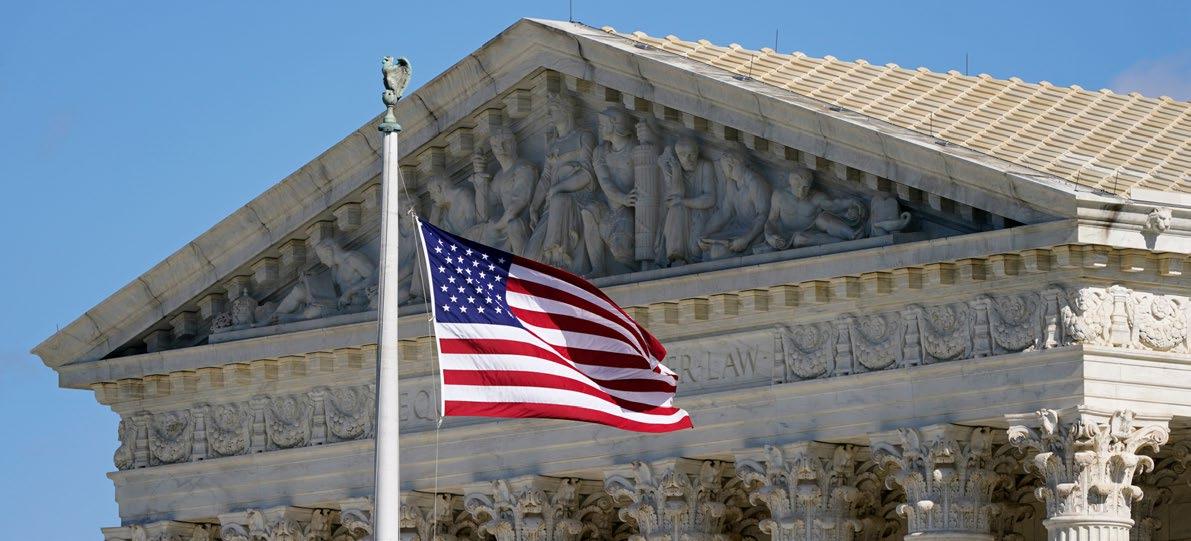
While the court’s majority made it
more difficult to achieve racial integration in higher education, there remain legitimate pathways universities should pursue to ensure their schools remain meaningfully open to students from all backgrounds. For instance, they may continue considering an applicant’s racialized experiences if it is raised in their application. To that end, universities could request diversity essays (similar to a personal statement), which allow applicants to voluntarily discuss different aspects of their identity and how their lived experiences affect their worldview and potential classroom contributions, without taking away from their written application materials.
Universities also can find new, creative ways to attract, recruit and retain students from racially diverse backgrounds, such as using virtual interviews, regional college fairs with on-sight admissions counselors, or even ZIP code-based mailing.
Likewise, law schools and other doctoral programs might start ramping up their pipeline and mentor programs with aspiring students from underrepresented communities. This is particularly true of the legal profession, where the court has long recognized since the Sweatt v. Painter case in 1950 the “practical” importance of making law schools accessible to all segments of society.
Universities can continue to offer scholarship opportunities that might
increase diversity by conditioning those scholarships on an applicant’s desire to work in underserved communities after graduation. Students also might see an increase in private scholarship opportunities offered by institutional donors, alumni affinity groups and civic organizations to support access to higher education for Black or other communities of color. Similarly, Sotomayor cited the brief filed by the Lawyers’ Committee in her dissent, asserting universities can continue and increase support for affinity groups on campus, as well as cross-cultural programming, to help ensure healthier climates.
Although the Supreme Court narrowed universities’ use of race in admissions, affirmative action policies are not dead. Holistic admission plans remain lawful, universities can continue considering a student’s racialized experiences among other experiences when reviewing a student’s application, and affirmative action policies in the employment sector remain untouched. As alumni and professionals, we must remind our alma maters and our profession to remain open to future generations of talented, hardworking and resilient students of color. Our nation’s future depends on it.
Taylor Dumpson serves as associate counsel at the Lawyers’ Committee for Civil Rights Under Law. She co-authored the brief for the respondent-students in the UNC affirmative action case. ◆
Generative artificial intelligence, known as generative AI, despite its immense promise, isn’t without its challenges in the realm of law.
Many legal professionals voice concerns about over-dependence on technology. If we lean too heavily on generative AI, do we run the risk of letting our legal acumen rust over time? Then there’s the often-discussed issue of bias. Just as a judge’s verdict might be influenced by his or her personal experiences, an AI’s output can reflect the biases in the data it was trained on. Additionally, in a profession where client confidentiality is paramount, relying on cloud-based AI solutions presents real worries about potential data breaches. And last, in a field that thrives on personal touch and nuance, can an AI truly replicate the subtleties and intuition a seasoned lawyer brings to the table?
Embracing the digital evolution in the legal sector is no small feat, especially when generative AI becomes a central player. While these challenges might initially seem daunting, with proactive strategies, they can be transformed into opportunities for innovation and advancement. The key is not to shun the issues but to address them directly, ensuring that technology acts as an enhancement rather than a hindrance. Let’s focus on each issue and explore practical solutions that allow us to integrate generative AI into the legal landscape.
Incorporating technology into the legal sphere has its considerations. For one, there’s the thought that consistent reliance might lead to certain skills being
used less often. Over-reliance on AI might allow data-focused AI insights to overshadow human-centric intuition. Additionally, being too tech-dependent might challenge adaptability in situations where clients might feel that their issues are not given genuine human attention.
The key lies in balance. Consider generative AI as a refined calculator. Just as using a calculator does not imply one can forget basic arithmetic, employing AI shouldn’t translate to sidelining core legal competencies. Instituting essential in-house workshops and prompting teams to periodically adopt manual methods can be beneficial. Engaging in case discussions without AI’s input ensures those legal aptitudes remain sharp and practiced.
Generative AI’s integration into law raises concerns about potential biases, stemming from historical data, homogeneous development teams, an over-emphasis on quantitative data and AI’s tendency to generalize. These biases can lead to unfair judgments, erode trust in legal systems and present ethical dilemmas for legal professionals. Addressing these is crucial to ensure that AI aids in delivering justice rather than compromising it.
The responsibility hinges on curating
diverse and inclusive training data sets for AI. Teaming up with data scientists can help guarantee that the AI’s educational resources are comprehensive and devoid of prominent biases. Routine checks of AI outcomes can assist in identifying and addressing biases. Scheduling yearly or biyearly assessments, including bringing in external specialists, can offer a renewed and impartial view of the AI’s determinations.
Incorporating generative AI into legal practices introduces data security challenges, arising from potential cyberbreaches, possible insufficient encryption, vulnerabilities in cloud storage, and data-sharing risks. These concerns threaten client confidentiality, risk exposure of case strategies and can lead to regulatory implications. For the legal industry to fully harness AI’s benefits, implementing robust security measures to safeguard sensitive information is imperative.
In choosing an AI platform, emphasize options equipped with strong security features, such as comprehensive encryption and multilevel verification. If cloud solutions raise

legal practices introduces data security challenges, arising from potential cyberbreaches, possible insufficient encryption, vulnerabilities in cloud storage, and data-sharing risks
data-driven solutions. We no longer have to rely on national statistics and wonder whether they reflect the situation in South Carolina.
Another thing I love about the report is that it incorporates the voices of low- and moderate-income people who have tried to access our court system. Far too often as attorneys and justice system stakeholders, we forget about the people we are creating systems for. The report does a phenomenal job of centering the voices of the people we are trying to serve.
Have you seen an increase or decline in demand for certain areas of pro bono work, or has it remained pretty steady across the board?
Continued From Page 29
concerns, explore in-house, local alternatives. Collaborate with cybersecurity experts for routine security checks and breach simulations. Taking these steps not only fortifies data protection but also enhances client confidence.
A: One of the most striking findings in the legal needs assessment is that 70% of parties in civil court in South Carolina are unrepresented, and that both parties have an attorney in less than 8% of cases. This statistic alone indicates that people just aren’t accessing the legal help they need. The report identifies several barriers to accessing legal help, including geography, concern about cost, lack of knowledge about what resources are available, mistrust of the legal system, and even not knowing that the problem is a legal one or might have a legal solution. Our job now is to figure out how to chip away at some of these barriers, and pro bono is absolutely part of the solution.
The legal needs assessment identified housing (specifically eviction defense) and family law (specifically divorce, child custody and child support) as areas of
greatest need, followed by debt collection, access to public benefits, immigration, and domestic violence. I think this would more or less align with what legal aid providers have been seeing for a long time, but now we can use the hard data from the legal needs assessment to plan programming that meets those specific needs and incorporates the new knowledge we have about barriers to accessing services.
The commission is working closely with the South Carolina Bar as they reimagine their pro bono program in response to the needs assessment. This is a priority for our new bar president, Rusty Infinger, and we’ve been studying successful programs in other states to ensure that the new program is sustainable, accessible for both volunteer lawyers and clients, and targeted to community needs. ◆
Cure work FOMO with a daily dose of news!
liance on AI might reduce client satisfaction, pose ethical questions and diminish professional fulfillment for lawyers. To truly benefit from AI, a balanced approach that combines technology with the intrinsic human essence of law is essential.
South Carolina Lawyers Weekly will keep you up-to-date and on the leading edge of information when you sign up for our daily newsletters.
sonal dimensions of their work.
• You’ll always know the latest legal news with our daily email newsletters.
Cure work FOMO with a daily dose of news!
South Carolina Lawyers Weekly will keep you up-to-date and on the leading edge of information when you sign up for our daily newsletters.
The integration of generative AI in law, while promising efficiency, raises concerns about losing the vital human touch. Legal practice thrives on empathy, intuition, contextual understanding and relationship building, aspects that AI can’t fully replicate. An over-re-
South Carolina Lawyers Weekly will keep you up-to-date and on the leading edge of information when you sign up for our daily newsletters.
• You’ll always know the latest legal news with our daily email newsletters.
• You’ll always know the latest legal news with our daily email newsletters.
• Court opinions and digests, news from the courts and more will keep you among the best informed - so you can be effective!
• Court opinions and digests, news from the courts and more will keep you among the best informed - so you can be effective!
• Keeping tabs on the success of colleagues — and competitors — will be a snap with our event notifications
• Court opinions and digests, news from the courts and more will keep you among the best informed - so you can be effective!


• Keeping tabs on the success of colleagues — and competitors — will be a snap with our event notifications
Generative AI has its hurdles in the legal world. However, with careful planning and proactive measures, these challenges can not only be mitigated but turned into opportunities for growth and evolution.
Cure work FOMO with a daily dose of news!
AI should serve as a support tool, not an outright substitute. While AI can offer analytical insights and comprehensive background details, crucial interactions like client meetings, strategy deliberations or courtroom representations demand the irreplaceable human touch. Organize training modules that focus on interpersonal skills and instinctive judgments and rein force lawyers’ connection to the per
• Round-the-clock website access keeps digital content at your fingertips, whenever and wherever you need it.
Free email newsletters: Sign up now at sclawyersweekly.com/subscribe
Anup Iyer is an associate at Moore & Van Allen’s office in Charlotte. His practice focuses on assisting clients with obtaining patent and trademark rights across diverse technology sectors; patent drafting, prosecuting and searching; freedom to operate and invalidity opinions; infringement and due diligence analyses; and trademark clear-
• Keeping tabs on the success of colleagues — and competitors — will be a snap with our event notifications
• Round-the-clock website access keeps digital content at your fingertips, whenever and wherever you need it.
• Round-the-clock website access keeps digital content at your fingertips, whenever and wherever you need it.
Free email newsletters: Sign up now at sclawyersweekly.com/subscribe
Cure work FOMO with a daily dose of news!
Free email newsletters: Sign up now at sclawyersweekly.com/subscribe
South Carolina Lawyers Weekly will keep you up-to-date and on the leading edge of information when you sign up for our daily newsletters.
You’ll always know the latest legal news with our daily
Leadership in the Law is an annual award that celebrates lawyers who are setting the standard for other lawyers. Leaders’ accomplishments include outstanding contributions to the practice of law in South Carolina, leadership in improving the justice system, acting as role models and mentors, and making essential contributions to South Carolina’s legal community and/or the community at large. We look forward to honoring these impressive practitioners on September 21st at the DoubleTree by Hilton Columbia.
Samantha E. Albrecht
Burnette Shutt & McDaniel
Beattie B. Ashmore
Beattie B. Ashmore, Attorney at Law
Shaheena R. Bennett
Bennett Law Firm
Christine E. Brimm
Barton Brimm
Jennifer Spragins Burnett
Harbinn Burnett
Ashley W. Creech
McGowan, Hood, Fedler & Phillips
D. Nichole Davis
McWhirter, Bellinger & Associates
Giampiero Diminich
Shumaker, Loop & Kendrick
Frank L. Eppes
Eppes & Plumblee
Maire E. Flynn
Collins & Lacy
Natasha M. Hanna
Law Office of Natasha M. Hanna
Hannah Honeycutt
S.C. Access to Justice Commission
Jennifer E. Johnsen
Gallivan, White & Boyd
Mark C. Joye
Joye Law Firm
D. Michael Kelly Mike Kelly Law Group
Thomas A. Killoren Jr.
KD Trial Lawyers
Douglas L. Kim
Kim, Lahey, & Killough
Rebecca Laffitte
Robinson Gray
LeRoy F. Laney
Riley Pope & Laney
Angus H. Macauley
Maynard Nexsen
Pierce T. MacLennan
Haynsworth Sinkler Boyd
Danielle M. Mitchell
Michell Ramseur
Stephen C. Mitchell
Fisher Phillips
Leah D. Montgomery
Palmetto Legal Solutions

Stanley L. Myers Sr.
Moore Bradley Myers
Bhumi A. Patel
Burr Forman
Michael J. Polk
Belser Law Firm
Carmen S. Scott
Motley Rice
Mary E. Sharp
Sharp Law Firm
Bert G. Utsey III
Clarson Fargnoli Utsey
Frances Ricci Welch
Land Parker & Welch
John S. Wilkerson III
Turner Padget
David Wilson
Law Firm Carolinas
Catherine Wrenn
Baker Donelson
In recognition of the ever-growing importance to deliver news in the most engaging way, we’ve revamped sclawyersweekly.com. You’ll find a more focused approach to today’s top stories and improved navigation, resulting in higher engagement on our site. This revamp also brings new advertising and marketing opportunities that connect businesses to decision-makers in the industry.


